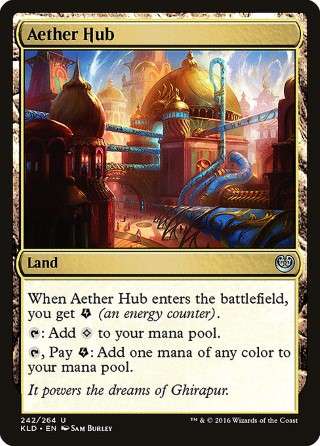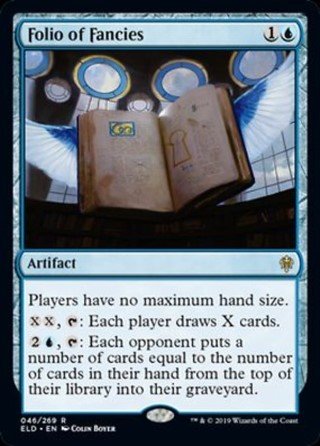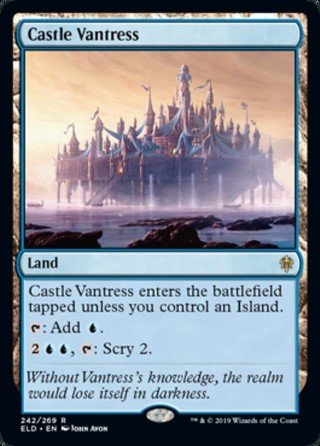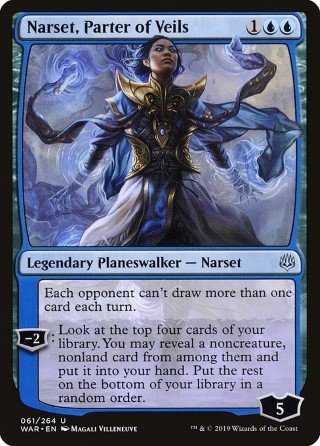Update
The description below is going to present this deck as a real powerhouse. And, unfortunately, that just isn't so. See when I originally posted this deck I was just comming off a 10 game win streak on Arena, and the deck was preforming amazingly.
Then this morning I woke up and saw Tmar's comment, and he'd had a rather different experience of the deck, reportedly going 1 and 14.
So my first thought was "Yikes, they must be the most unlucky person alive", but then my second thought was "Or am I just the luckiest?"
And so I played a few more games, and they did not go nearly as well for me. And then I did some odds calculations, and it turns out my second thought is much closer to the truth than my first.
So, in its current state, this deck is not nearly as good as my description makes it out to be. In fact it's probably pretty bad. I do still think there's a good a deck trapped in here somewhere, so I'll probably keep tinkering with this. In the mean time, play at your own risk.
Original Description
This is a mono-blue Devotion deck built around Nyx Lotus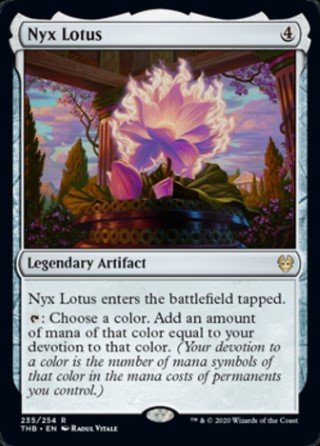 . The basic idea is to use Kiora, Behemoth Beckoner
. The basic idea is to use Kiora, Behemoth Beckoner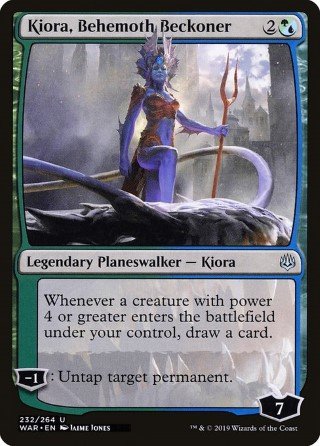 and Corridor Monitor
and Corridor Monitor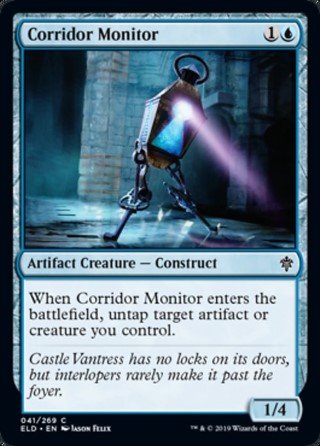 to untap our Lotus repeatedly, and generate essentially infinite mana. We then funnel that mana into Gadwick, the Wizened
to untap our Lotus repeatedly, and generate essentially infinite mana. We then funnel that mana into Gadwick, the Wizened to draw our whole deck and win with Thassa's Oracle
to draw our whole deck and win with Thassa's Oracle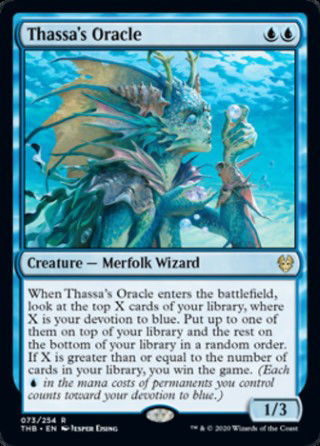 .
.
We use bounce effects as our main source of interaction, with 8 in the main deck and 2 more in the sideboard, because they serve a double purpose in this deck. Once we've got Nyx Lotus on the board and we're combo-ing away, they let us return our Gadwicks and our Corridor Monitors to our hand and replay them.
on the board and we're combo-ing away, they let us return our Gadwicks and our Corridor Monitors to our hand and replay them.
Now the obvious danger of playing so many bounce spells is that we lose out on card advantage. Each time we bounce something, we lose a card and our opponent doesn't, so in the late game they will have more threats than us, and overwhelm us. Even an aggro deck with no card draw at all will eventually have more resources than us because of our reliance on bounce spells. But not to worry, we're not going to get to the late game.
This deck is remarkably fast and consistent. Left unchallenged, we'll be winning the game on turn 5 or 6 80% of the time, so all we need to do is slow our opponent down a tiny bit, and bounce spells are perfect for that.
Walk-through
This is one of those decks that's very confusing the first time you encounter it, and it's hard to visualize how it plays just by looking at a deck list, so lets take a moment to walk through how the combo works.
And for the purposes of this explanation let's assume our opponent kept a zero land hand, and can't do anything to interact with us or pressure us at all. We're not going to worry about playing to keep up Quench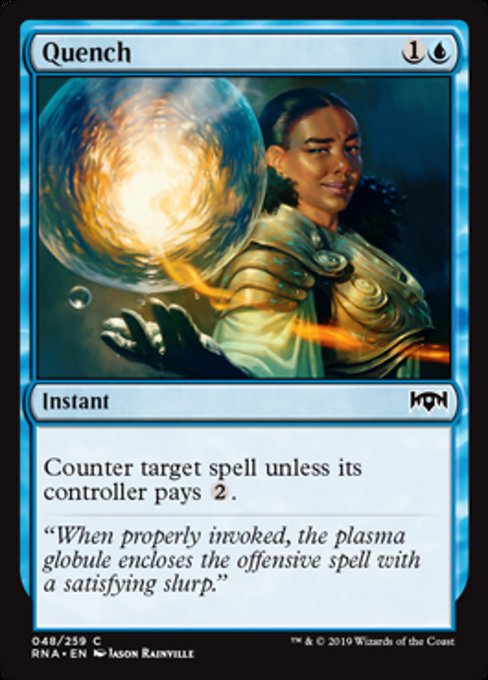 , or Unsummon
, or Unsummon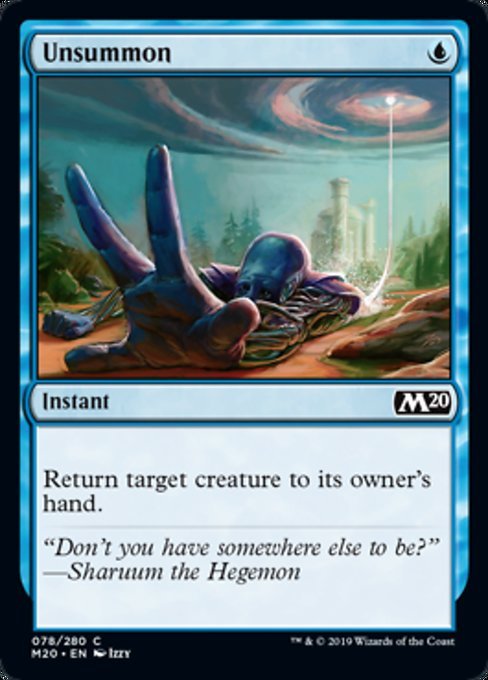 or anything else, we're just going to try and get the combo off as quick as possible.
or anything else, we're just going to try and get the combo off as quick as possible.
So to set up, we do nothing turn 1, drop Omen of the Sea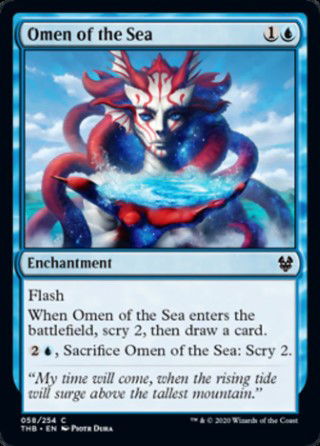 turn 2, Narset, Parter of Veils
turn 2, Narset, Parter of Veils turn 3, and then Nyx Lotus
turn 3, and then Nyx Lotus turn 4.
turn 4.
With this done, we go into turn 5 with 3 devotion, 4 land, an untapped Nyx Lotus, and we'll assume we have a Gadwick, the Wizened and a Corridor Monitor
and a Corridor Monitor in hand. And now we're ready to combo off.
in hand. And now we're ready to combo off.
We start off by playing our Corridor Monitor, without tapping our Nyx Lotus. If you're playing on Arena, go into full control mode so you can tap your Lotus in response to targeting it with Corridor Monitor. This way the monitor itself can add one to our devotion before we tap our Lotus, giving us one extra mana.
In total this should net us 10 mana (2 from the 2 lands we haven't tapped, and 4 from tapping Nyx Lotus twice), so we play Gadwick with X = 4, leaving 3 mana in our pool. We're overwhelmingly likely to draw a 5th land in these 4 cards, so that essentially gives us 4 mana to play anything we draw. Assuming any of them are Unsummon , another Corridor Monitor
, another Corridor Monitor , Kiora Behemoth Beckoner, Calous Dismissal or Unexplained Disappearance
, Kiora Behemoth Beckoner, Calous Dismissal or Unexplained Disappearance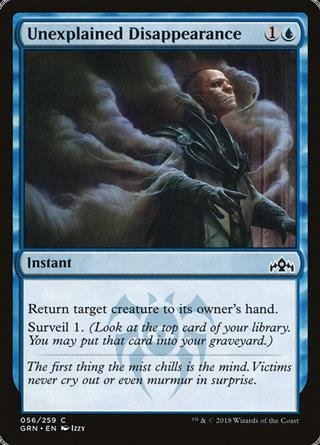 , we can untap our Nyx Lotus again. And now that we have Gadwick, the Wizened
, we can untap our Nyx Lotus again. And now that we have Gadwick, the Wizened on the board, our devotion is up to 7.
on the board, our devotion is up to 7.
Now lets make some assumptions about our draw. Assuming that between the four cards from Gadwick, activating Narset, Parter of Veils (we played her on turn 3 remember), and the cards we started turn 5 with, we have 2 untap / bounce effects and one Gadwick / another bounce effect, we can continue.
(we played her on turn 3 remember), and the cards we started turn 5 with, we have 2 untap / bounce effects and one Gadwick / another bounce effect, we can continue.
After we play our first untap effect we'll have 7 - 9 mana to work with, and the first thing we'll want to do with it is play out any cards we have that increase our devotion. We do of course have to keep enough mana to play our second untap effect, but because increasing our devotion increases the amount of mana Nyx Lotus generates, cards like Thassa's Oracle are essentially free.
are essentially free.
Once we're done with that, we'll play out our second untap effect, and at this point we should have 10 - 16 mana, and we'll use it to play our second Gadwick, and draw 4 - 10 cards, with 3 mana left over in our pool.
Now 4 cards probably isn't enough to keep us going, but 10 is enough that we have good odds of drawing another three bounce / untap effects and doing this all over again. And we only have to do it about 3 times total before we've got 20 cards left in our deck and twenty Devotion to blue: enough for Thassa's Oracle to win us the game.
to win us the game.
Now just looking at this sequence on paper, it might not seem all that likely to work. But keep in mind just how much of our deck is either an untap effect, a bounce effect, or a way too look through our deck while increasing our devotion. All told there are only 10 non-land cards in our deck that don't count as any of these (4 of which are the Lotus itself, so only three will be left in our deck once we're trying to combo) so we've got pretty good odds of chaining everything together.
Besides, even if we do fizzle out, we'll still gain significant advantage. Even in the worst case scenario we still draw 4 cards, then untap our Nyx Lotus and leave up 7 mana during our opponent's turn. Then, on our next turn, we start with 7 devotion, making it much more likely that we go infinite.
All in all, our combo is absurdly convoluted but it still manages to be more consistent than it has any right to be.
Folio of Fancy
So above I mentioned that there are 6 non-land cards in our deck, besides Nyx Lotus itself, that have the potential to brick our combo. So what are these cards? Well 4 of them are Quench
itself, that have the potential to brick our combo. So what are these cards? Well 4 of them are Quench , which I think is a pretty self explanitory inclusion. The other two are Folio of Fancy, which is significantly less so.
, which I think is a pretty self explanitory inclusion. The other two are Folio of Fancy, which is significantly less so.
Folio is in this deck as a discount Gadwick, the Wizened that can be grabbed by Narset, Parter of Veils
that can be grabbed by Narset, Parter of Veils . While having to pay two mana per draw instead of one obviously slows us down, we can overcome that if we get our devotion count high enough. And of course while we're combo-ing off, it isn't too big of a deal if our opponent draws cards too. If we're going to win this turn, our opponent is going to be limited more by their mana than by the number of cards in their hand.
. While having to pay two mana per draw instead of one obviously slows us down, we can overcome that if we get our devotion count high enough. And of course while we're combo-ing off, it isn't too big of a deal if our opponent draws cards too. If we're going to win this turn, our opponent is going to be limited more by their mana than by the number of cards in their hand.
But outside of emergency card draw on our last turn, we can also combine it with Narset, Parter of Veils so that when we activate it at the end of our opponent's turn they don't draw any cards at all.
so that when we activate it at the end of our opponent's turn they don't draw any cards at all.
It's also a good card to have on the board when we miss our combo kill. Since we can often leave Nyx Lotus untapped going into our opponent's turn, we can use all that mana once our opponent has tapped out to draw more cards for next turn. And even if our opponent doesn't tap out, and we don't have a Narset to prevent them from drawing, both players drawing will favor us against any deck that's not running counterspells.
Tips & Tricks
Even though we did it in the walk-through, it's rarely a good idea to drop Nyx Lotus on turn for and pass the turn. You'll usually want to play it on turn 5 or 6 to keep up some mana for Quench
on turn for and pass the turn. You'll usually want to play it on turn 5 or 6 to keep up some mana for Quench , Unsummon
, Unsummon , or other interaction.
, or other interaction.
Remember your bounce spells can also be used to save your creatures from removal.
Against aggro opponents it's often a good idea to play Gadwick, the Wizened early, even if you have to declare X = 0, because his ability to tap down your opponent's creatures can buy you a lot of time.
early, even if you have to declare X = 0, because his ability to tap down your opponent's creatures can buy you a lot of time.
We're running two Blast Zone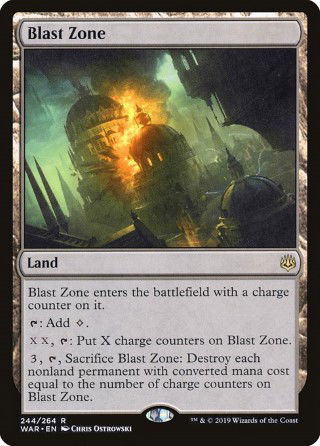 , but be careful with them. All our permanents are CMC 2 or 3, and it's very possible to hurt ourselves more than the opponent when destroying all permanents of either of those CMCs. Make sure to bounce anything you really need before activating the blast zone.
, but be careful with them. All our permanents are CMC 2 or 3, and it's very possible to hurt ourselves more than the opponent when destroying all permanents of either of those CMCs. Make sure to bounce anything you really need before activating the blast zone.
When deciding how much mana to leave up between Gadwicks, consider what combinations of cards would let you untap Nyx Lotus . The minimum it can cost is 2 mana for a Corridor Monitor
. The minimum it can cost is 2 mana for a Corridor Monitor . If you already have one on the board, then it costs a minimum of 3 mana to bounce it with Unsummon
. If you already have one on the board, then it costs a minimum of 3 mana to bounce it with Unsummon and re-play it. Kiora, Behemoth Beckoner
and re-play it. Kiora, Behemoth Beckoner is also 3 mana to play. a It goes up to 4 if you're stuck using one of the more expensive bounce spells on a Corridor Monitor, and tops out at 5 for Callous Dismissal
is also 3 mana to play. a It goes up to 4 if you're stuck using one of the more expensive bounce spells on a Corridor Monitor, and tops out at 5 for Callous Dismissal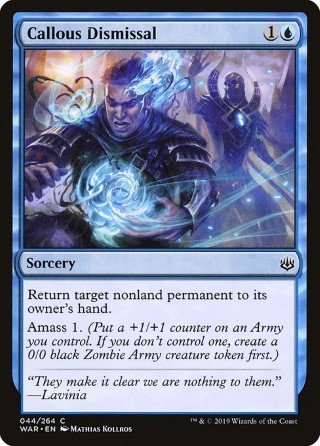 on Kiora. The odds calculations for whether an extra draw is worth not leaving enough mana for one of these combinations change depending on what cards are left in your deck and are probably too complicated to do in the middle of a game, but if in doubt 3 mana is usually the best choice, especially if you have a chance of drawing a land you can play.
on Kiora. The odds calculations for whether an extra draw is worth not leaving enough mana for one of these combinations change depending on what cards are left in your deck and are probably too complicated to do in the middle of a game, but if in doubt 3 mana is usually the best choice, especially if you have a chance of drawing a land you can play.
When deciding whether to hold back an untap effect for after you draw or play it before to draw more cards, the main difference maker is your devotion. Approximately 1/4 of the cards in our deck can untap Nyx Lotus, so we should draw roughly 1 untap effect for every 4 cards we draw. So if untapping Nyx Lotus before our draw effect lets us draw at least 5 extra cards, then it's worth it. Otherwise, save it for afterwards.
Sideboarding
4 Aether Gust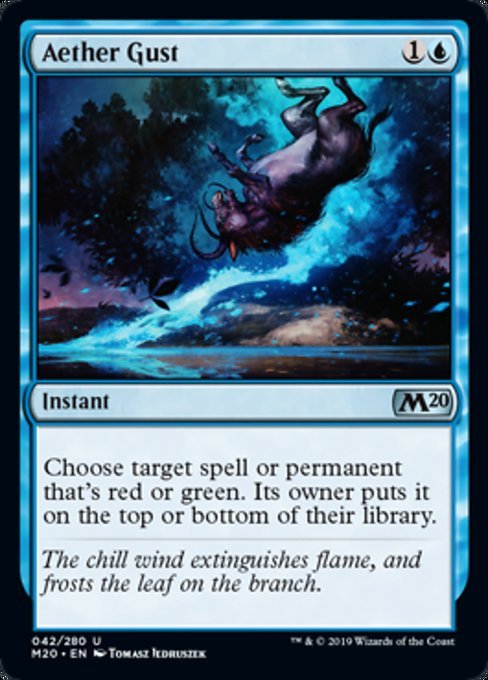 to help tackle aggro decks, which are universally running Embercleave
to help tackle aggro decks, which are universally running Embercleave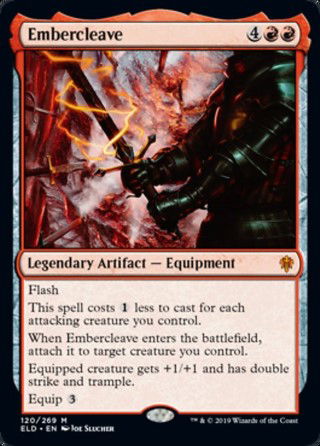 right now, so this card can always find targets against them. Also a good answer to Nissa, Who Shakes the World
right now, so this card can always find targets against them. Also a good answer to Nissa, Who Shakes the World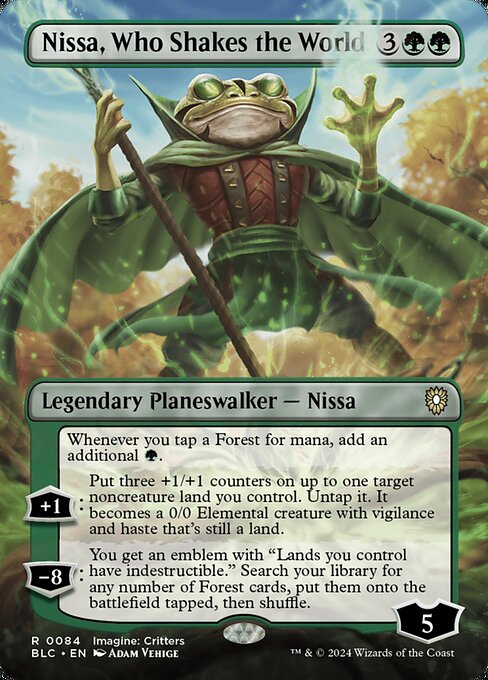 , and our best chance of interacting with Shifting Ceratops
, and our best chance of interacting with Shifting Ceratops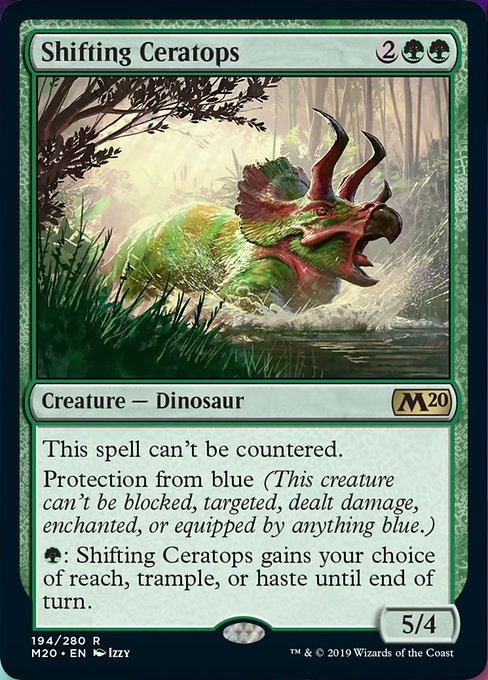 . It's also theoretically possible to get a 5 mana Nyx Lotus untap by using this to put our own Kiora, Behemoth Beckoner
. It's also theoretically possible to get a 5 mana Nyx Lotus untap by using this to put our own Kiora, Behemoth Beckoner on top of our deck and then drawing it with Narset, Parter of Veils
on top of our deck and then drawing it with Narset, Parter of Veils or something, but that's rarely relevant.
or something, but that's rarely relevant.
1 extra Callous Dismissal for non-creature decks. These are more rare than they used to be, but given how much worse Unexplained Disappearance
for non-creature decks. These are more rare than they used to be, but given how much worse Unexplained Disappearance is against a deck without creatures, it's nice to have something to swap it out for.
is against a deck without creatures, it's nice to have something to swap it out for.
1 extra Unexplained Disappearance , Callous Dismissal
, Callous Dismissal being a sorcery can be a real liability against flash decks or aggro decks with Haste creatures.
being a sorcery can be a real liability against flash decks or aggro decks with Haste creatures.
4 Mystical Dispute for flash decks, or any deck with counterspells in general.
for flash decks, or any deck with counterspells in general.
2 Sorcerous Spyglass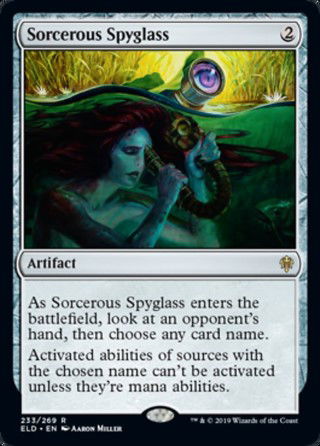 mostly to shut down Witch's Oven
mostly to shut down Witch's Oven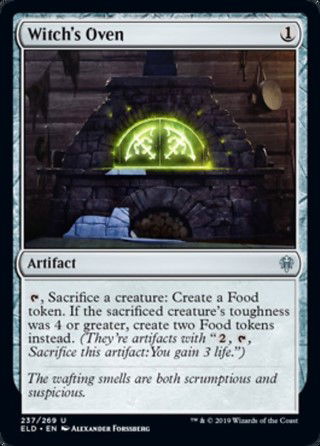 , but this a pretty flexible card. There's a lot of ways it can make your opponent's life just that little bit harder.
, but this a pretty flexible card. There's a lot of ways it can make your opponent's life just that little bit harder.
1 extra Narset, Parter of Veils for slower decks. Basically, if your opponent can't pressure you in the first few turns, you'll want the extra copy.
for slower decks. Basically, if your opponent can't pressure you in the first few turns, you'll want the extra copy.
2 Ugin, the Ineffable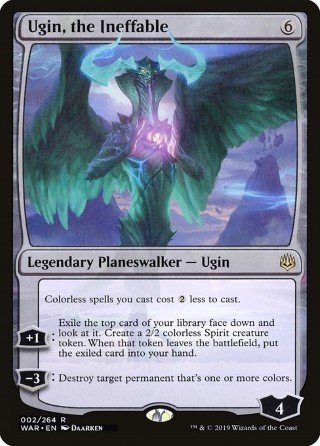 so we don't automatically lose to Shifting Ceretops. Ugin's great for this because he can both create blockers for it and destroy it. Despite his high mana cost, Ugin is more of a resource against aggro decks than control in this deck. Between our bounce spells slowing down our opponent and Nyx Lotus ramping us into the stratosphere, we will usually have an opportunity to play him against aggro, and once we do he does a phenomenal job of clogging up the board while we try and chain our combo together. As an added bonus, we can bounce the tokens he creates to instantly draw the cards under them.
so we don't automatically lose to Shifting Ceretops. Ugin's great for this because he can both create blockers for it and destroy it. Despite his high mana cost, Ugin is more of a resource against aggro decks than control in this deck. Between our bounce spells slowing down our opponent and Nyx Lotus ramping us into the stratosphere, we will usually have an opportunity to play him against aggro, and once we do he does a phenomenal job of clogging up the board while we try and chain our combo together. As an added bonus, we can bounce the tokens he creates to instantly draw the cards under them.
Regardless of match-up, you're going to want to adjust the balance of Callous Dismissal and Unexplained Disappearance
and Unexplained Disappearance after game 1. There are 2 of each in the main beck because we're hedging our bets on what kind of deck we'll face, but that's not optimal in any match-up.
after game 1. There are 2 of each in the main beck because we're hedging our bets on what kind of deck we'll face, but that's not optimal in any match-up.
It's usually correct to trim 1 Folio of Fancy and a couple Omen of the Sea against aggro decks to make room for higher tempo plays.
against aggro decks to make room for higher tempo plays.
Mystical Dispute can sometimes be a good option even against decks that aren't running any counterspells, or even any blue cards. Decks like Fires of Invention
can sometimes be a good option even against decks that aren't running any counterspells, or even any blue cards. Decks like Fires of Invention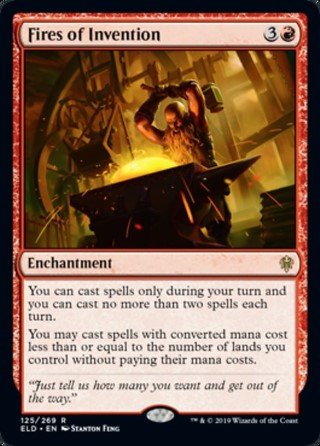 that rely on powerful but high mana cost plays are very vulnerable to counterspells, even relitively weak ones like full-cost Mystical Dispute
that rely on powerful but high mana cost plays are very vulnerable to counterspells, even relitively weak ones like full-cost Mystical Dispute .
.
Final Thoughts
This deck feels like the return of Nexus of Fate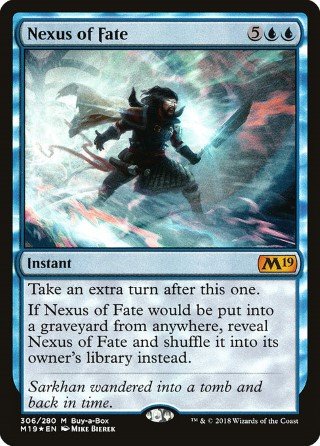 . Fast, difficult to interact with, dependant on a 4 mana enchantment artifact that provides a lot of ramp, and our win condition has us playing solitaire for a minute or two at the end of the match.
. Fast, difficult to interact with, dependant on a 4 mana enchantment artifact that provides a lot of ramp, and our win condition has us playing solitaire for a minute or two at the end of the match.
For most of you, that probably isn't an endearing comparison. And I have no doubt that this deck will be hated if it ever becomes widely played. But it is powerful, and it is fun to play even if it isn't fun to play against.
Login to comment
2 comments
Created: 23 Jan 2020
1535 247 2
Mainboard - 60 cards (15 distinct)
| Creature (10) | |||
|---|---|---|---|
| $0.17€0.100.03 | |||
| $18.69€14.452.09 | |||
| $1.07€0.460.02 | |||
| Instant, Sorcery, Enchantment, Artifact (22) | |||
|
4
Quench

|
$0.15€0.050.03 | ||
| $0.20€0.120.03 | |||
| $1.76€0.470.02 | |||
| $0.19€0.070.03 | |||
| $5.48€2.580.02 | |||
|
4
Unsummon

|
$0.20€0.080.03 | ||
| $0.15€0.100.03 | |||
| Land (23) | |||
| $0.49€0.400.10 | |||
|
17
Island
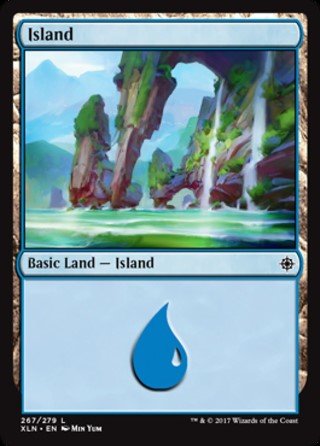
|
$0.15€0.020.03 | ||
| $0.50€0.560.02 | |||
| Planeswalker (5) | |||
| $0.85€0.810.04 | |||
| $0.96€0.650.03 | |||
Sideboard - 15 cards (7 distinct)
| $0.26€0.270.04 | |||
| $0.45€0.430.18 | |||
| $0.31€0.170.02 | |||
| $0.19€0.070.03 | |||
| $0.15€0.100.03 | |||
| $1.28€0.890.02 | |||
| $0.85€0.810.04 |
Add deck to your favorites
Please log in to be able to store your favorite decks for easy access under My Decks in the main menu.
| 20 | 5 | 18 | 0 | 0 |
|---|---|---|---|---|
| 2 | 9 | 4 | 0 | 0 |

